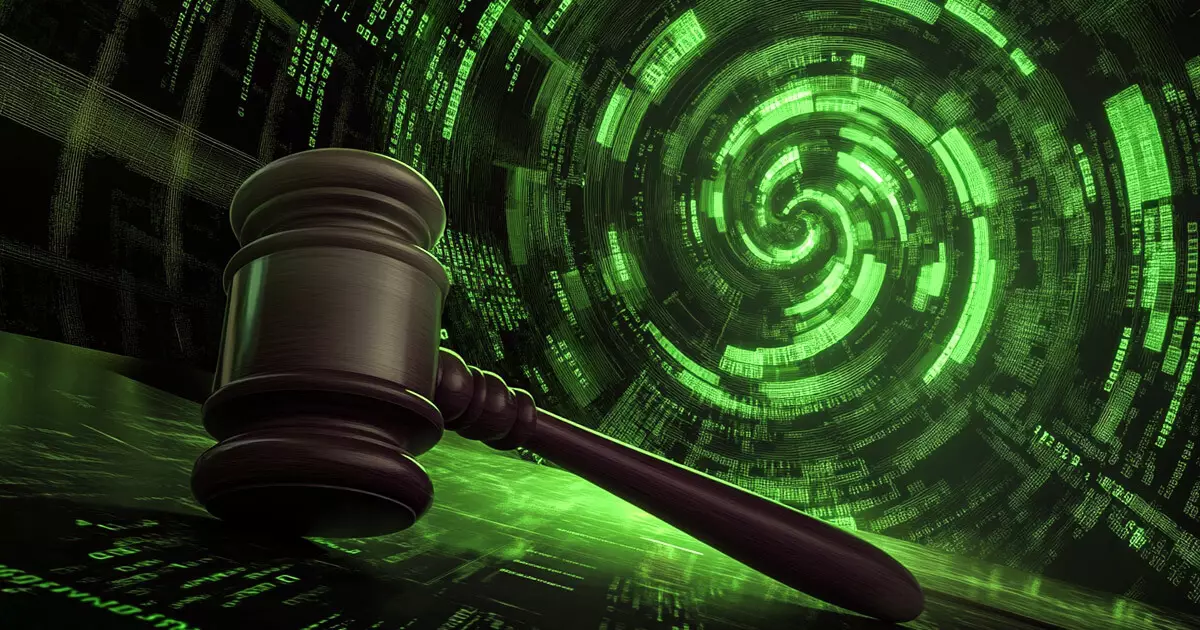The recent ruling by Judge Katherine Polk Failla in the Southern District of New York has stirred considerable debate within the cryptocurrency community and legal circles alike. By denying First Amendment protection for software code utilized in crypto protocols, specifically Tornado Cash, the judge has initiated what could become a pivotal moment in how the legal system interprets code as speech. This article delves deeper into the implications of this verdict, the ongoing case against Tornado Cash developer Roman Storm, and the broader ramifications for blockchain technology developers.
The crux of Judge Failla’s ruling rests upon the assertion that while programming code can be a form of expression, it cannot be classified as protected speech when it is used to facilitate financial transactions, specifically money transmission. This distinction is critical; it suggests that actions carried out through code—such as the transmission of funds—are subject to the same regulatory scrutiny as traditional financial institutions. By rejecting Storm’s argument for First Amendment coverage, the judge implied that the methods and systems developers create must adhere to existing laws, including those related to money transmission.
This opens the floodgates for future interpretations where code is viewed less as a form of artistic or personal expression and more as a tool subject to regulation and oversight by financial authorities. The implications of this could lead to an increased burden on developers who may now face liability over the misuse of their technology, fundamentally altering how software developers approach the creation of decentralized applications (dApps).
The case against Roman Storm exemplifies the tensions between innovation and regulatory compliance in the rapidly evolving financial technology sector. Set to proceed to trial on December 2, Storm is facing serious charges: money laundering, operating an unlicensed money-transmitting business, and violating U.S. sanctions. Prosecutors paint a picture of Tornado Cash as a vehicle for cybercrime, alleging that it has enabled individuals to bypass financial regulations, thus exacerbating the growing conundrum of cryptocurrency regulation.
Storm’s defense leverages the argument that his actions were protected under free speech laws, implying that by developing Tornado Cash, he was exercising his rights as a creator. However, Judge Failla’s ruling indicates a more stringent reality, suggesting that regardless of intent, the responsibility for potentially harmful uses of such technology lies squarely with its developers. As the case evolves, industry observers will scrutinize the outcomes to ascertain the precedent it establishes for future cases involving crypto protocols.
From a regulatory perspective, Judge Failla’s decision poses significant challenges and uncertainties for the cryptocurrency landscape. By categorizing Tornado Cash and similar protocols as money transmitters, the ruling suggests a potential reclassification of numerous decentralized applications under existing financial regulations such as the Bank Secrecy Act (BSA). This could compel numerous industry players to modify their operations, re-evaluate their compliance strategies, and potentially limit the ambitious nature of blockchain innovation.
Critics within the industry, such as those from the DeFi Education Fund and legal experts like Jake Chervinsky, argue that this ruling constitutes an alarming precedent. A shift towards imposing broad liability upon developers for the functions of their code could dissuade innovation and lead to a chilling effect where developers may avoid creating new technologies altogether for fear of legal repercussions. As a result, the ruling may inadvertently stifle the very innovation regulators seek to oversee by creating an environment of caution.
As the cryptocurrency sector continues to expand, understanding and compliance with regulations are becoming more crucial than ever. Judge Failla’s ruling offers clarity but also emits cautionary signals regarding the intersection of technology, law, and individual rights. The potential appeal by Storm and the responses from the broader industry will likely shape how these legal principles are established in the coming years.
As future legal battles unfold, the discourse surrounding the applicability of existing financial laws to new technologies will intensify. The industry will need to navigate this evolving landscape, advocating for clear regulations that can foster both innovation and compliance without adversely impacting the rights and freedoms of developers.
The ruling marks a significant point of contention between legal authority and crypto innovation, a clash that encapsulates the challenges ahead as the world grapples with the implications of such technological advancements in the realm of law.



Leave a Reply